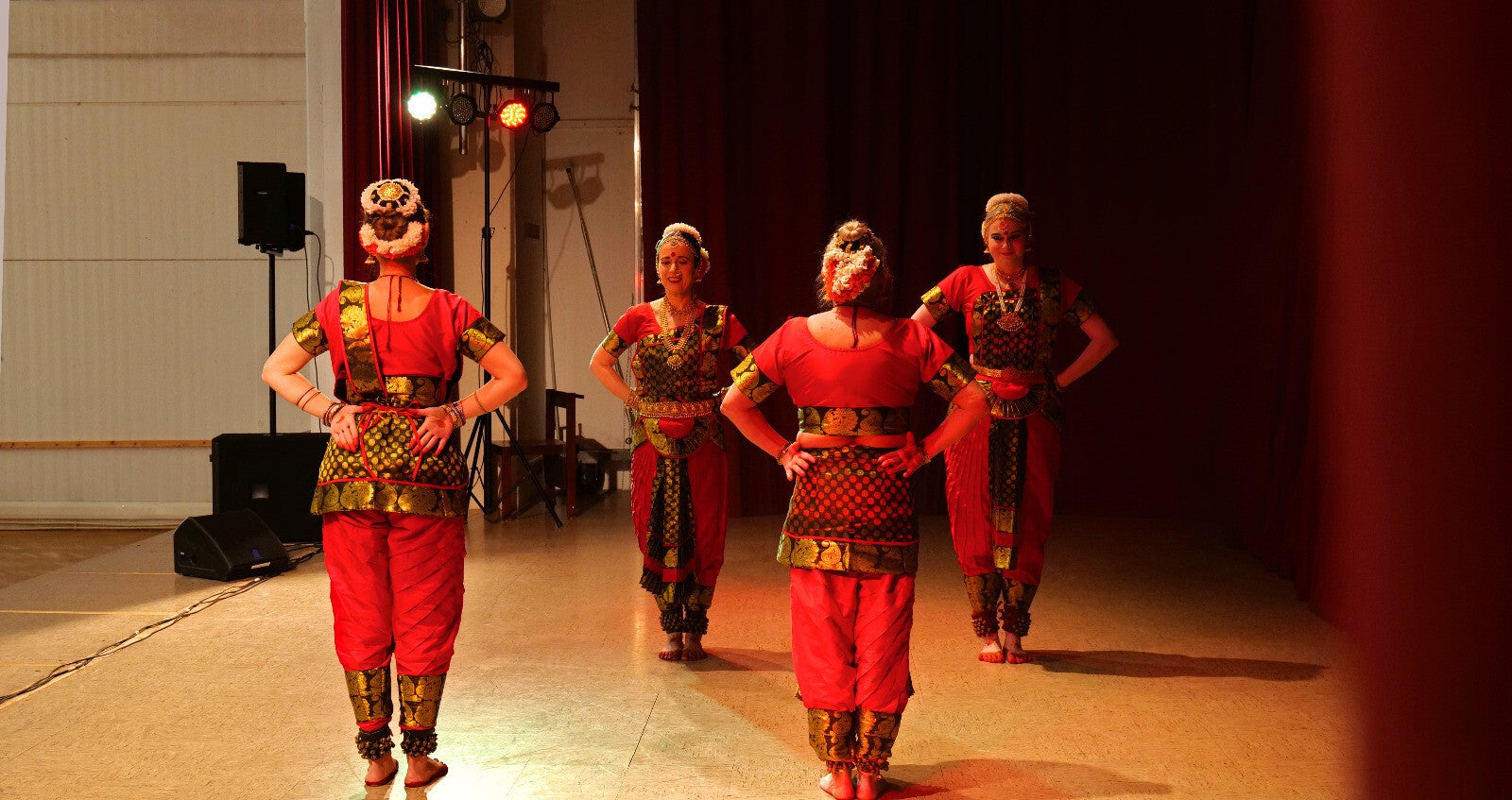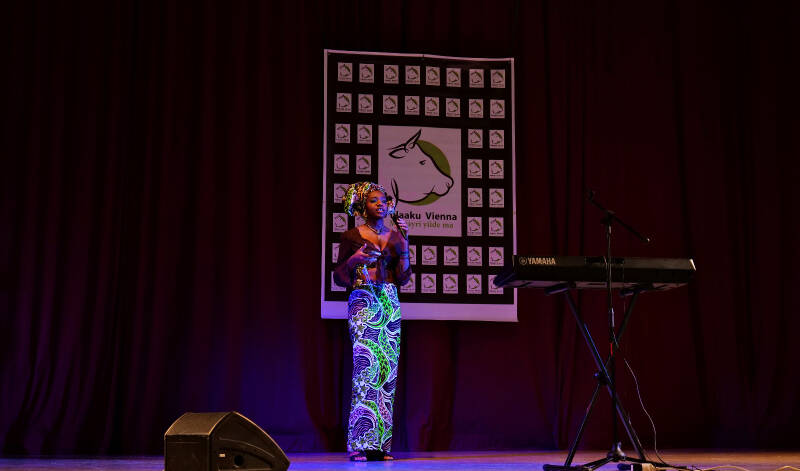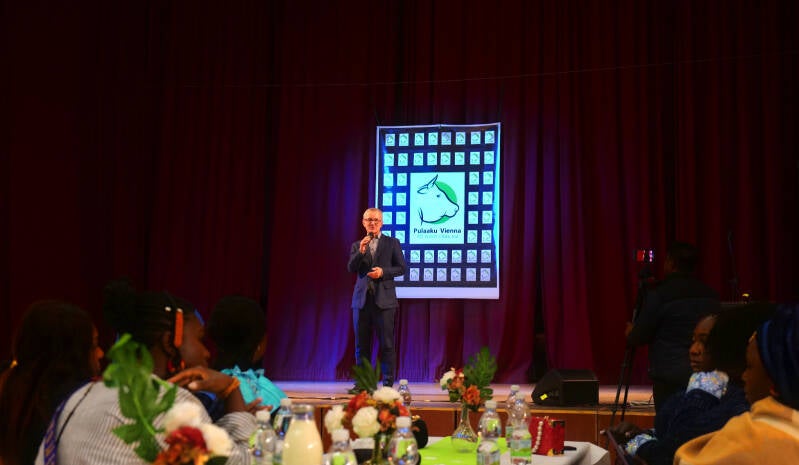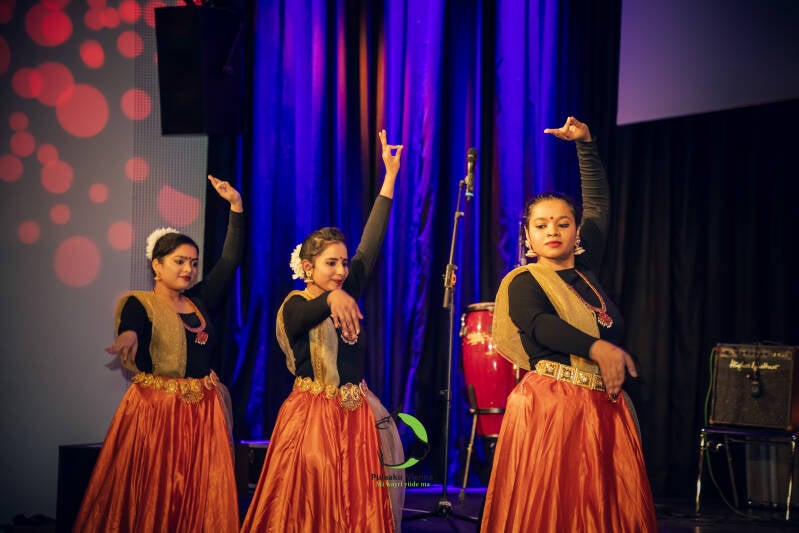
Our story
Our event will celebrate the rich cultural diversity of Austria, Brazil, Thailand, Sri Lanka, India, Swahili culture, Rwanda, Guinea Conakry, Serbia, Morocco, Syria, Sierra Leone and the Pulaaku people.

“The Thread of Silence”
In the highlands of Futa Djallon, where mist draped the mountains like a white turban, an old Fulani griot named Aissatou told stories by the fire. Her voice was quiet, but in its softness lived centuries.
“You must carry Pulaaku not as a word,” she whispered to her grandson Amadou, “but as your second skin.”
Amadou was curious. He had heard of Pulaaku a code of modesty, patience, pride, and restraint but he wanted to see it, feel it beyond tradition. So he set out across the Fulani heartlands, tracing the path of their ancestors.
In Toro, under the golden Sahel sun, he met a herder who offered water without asking. When Amadou thanked him, the man simply nodded and looked away, eyes on his cattle.
“Why do you turn from praise?” Amadou asked.
The herder smiled faintly. “Pulaaku is not noise. It is knowing your worth without needing applause.”
In the floodplains of Masina, he watched young girls dancing in silence after evening prayers elegant, composed, yet filled with hidden joy. Their movements told of discipline learned young and emotions worn with dignity.
An elder told him, “We teach our children to speak more with their hearts than their mouths. That is why our culture survives the river’s flood and time’s drought.”
In Sokoto, he visited the resting place of Usman dan Fodio, who had once carried the flame of Fulani reform and unity. There, Amadou saw calligraphy etched in stone: “Justice with restraint, leadership with humility this is our way.”
A scholar by the shrine said, “Even when we ruled, we ruled as if we served. That is Pulaaku: the quiet strength beneath the robe.”
When Amadou returned to Futa Djallon, his grandmother asked him, “Did you find it?”
He nodded. “Pulaaku is not just in the tongue it lives in how we walk, how we wait, how we forgive. Across mountains, plains, rivers, and cities it binds us like a hidden thread.”
Aissatou smiled, placing her hand over his heart.
“Then you are ready to carry our silence with pride.”

Poet Gawdesque Inspires at Pulaaku Vienna with Words that Bridge Cultures
At the heart of the Pulaaku Vienna celebration, acclaimed poet Gawdesque captivated the audience with a powerful spoken word performance that echoed the event’s spirit of identity, resilience, and cultural unity.
Blending lyrical depth with a striking stage presence, Gawdesque explored themes of heritage, belonging, and cross-cultural connection drawing listeners into a shared emotional journey. Their poetry served as both a reflection and a challenge: to honor our roots while embracing the richness of global diversity.
The performance was a standout moment at Pulaaku, reminding all in attendance of the transformative power of art and language

UNESCO Secretary-General Martin Fritz at Pulaaku Vienna Event: Advocating for Cultural Exchange
Nartakah Dance Academy from Sri Lanka Graces the Pulaaku Vienna Event
The Pulaaku Vienna event was enriched by a captivating performance from the Nartakah Dance Academy, a distinguished cultural troupe from Sri Lanka. Known for their elegant choreography and mastery of traditional Sri Lankan dance forms, the academy brought a vibrant energy to the multicultural gathering



Indian Dance Academy Showcases Cultural Elegance at Pulaaku Vienna
The Pulaaku Vienna event featured a stunning performance by an esteemed Indian dance academy, adding rich color and rhythm to the multicultural celebration. Blending classical and contemporary Indian dance forms, the group mesmerized the audience with their artistry, precision, and storytelling.
Their presence underscored the event’s central message of cultural exchange and unity, as Indian traditions met Fulani heritage on a shared stage. The performance served as a powerful tribute to the beauty of diversity and the universal language of dance.
Pulaaku Platform: Bridging Cultures Together
Pulaaku Platform is here to foster intercultural connections and promote understanding across diverse communities.
Our mission is to create an inclusive space where people from different cultural backgrounds can engage, share their stories, and celebrate the richness of diversity.
By encouraging dialogue and collaboration, Pulaaku helps build bridges that unite people, nurture mutual respect, and inspire a global sense of togetherness. Join us today and be a part of the movement to connect cultures and create a more harmonious world.
Beyond the ordinary
This is where our journey begins. Get to know our business and what we do, and how we're committed to quality and great service. Join us as we grow and succeed together. We're glad you're here to be a part of our story.
Core Elements of Pulaaku
The specific values may vary slightly by region, but the most commonly cited pillars include:
- Munyal (Patience, Endurance, Self-Control)
- The ability to endure hardship, control one’s emotions (especially anger), and remain composed even in difficult circumstances.
- Munyal is perhaps the most praised virtue in Fulani society.
-
Hakkilo (Intelligence, Wisdom, Thoughtfulness)
- The capacity for reflection, prudence, and wise decision-making.
- This includes the ability to solve problems diplomatically rather than violently.
-
Semteende (Modesty, Respect, Shame)
- A strong sense of modesty and the avoidance of behavior that would bring shame.
- It also includes showing respect for elders, traditions, and social hierarchies.
-
Laawol (Courage, Discipline, Loyalty)
- Often associated with bravery, especially among pastoral Fulani.
- Includes defending one’s community and way of life with honor.
-
Ngorgu (Generosity)
- Being generous and hospitable, particularly toward guests or those in need.

